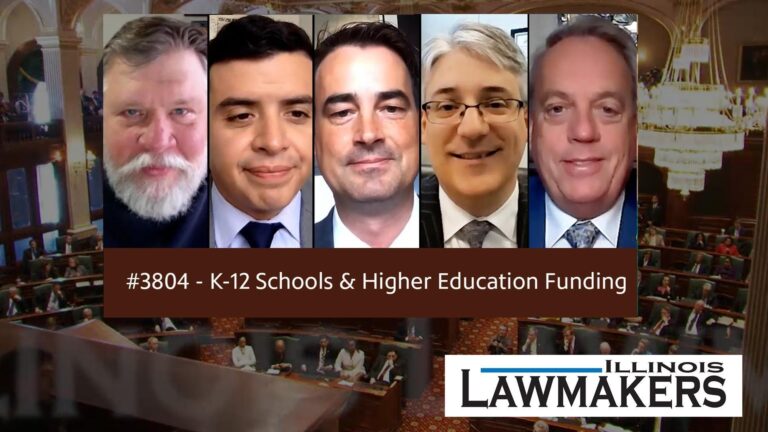Illinois Education Reform: Navigating Cellphone Policies, Teacher Evaluations, and Resource Funding
Reevaluating Cellphone Use in Schools: Balancing Focus and Fairness
Illinois legislators are currently debating new regulations aimed at limiting cellphone usage during instructional time. Proponents argue that restricting phones can considerably reduce distractions, thereby enhancing students’ ability to concentrate and engage in lessons. Schools that have adopted such restrictions report a marked decline in off-task behaviors, indicating that a phone-free classroom environment may foster better academic focus.
Conversely, critics warn that outright bans might neglect the educational advantages of mobile technology, such as instant access to research tools and interactive learning applications. Additionally, concerns about equity arise, as some students-especially those from marginalized communities-depend on their devices for communication and safety. Educators suggest a middle ground: controlled cellphone use that leverages technology’s benefits while minimizing disruptions.
| Arguments Supporting Cellphone Restrictions | Arguments Opposing Cellphone Restrictions |
|---|---|
| Minimizes distractions during lessons | Reduces access to digital educational resources |
| Enhances student attentiveness and participation | Raises equity concerns for students reliant on phones |
| Establishes consistent classroom norms | Limits communication with parents and emergency contacts |
| Supports conventional instructional methods | Neglects development of digital literacy skills |
- Policy Development: Crafting flexible guidelines that consider diverse student needs and contexts.
- Educator Training: Providing teachers with tools to integrate technology thoughtfully.
- Family Engagement: Involving parents in discussions about appropriate device use.
Revamping Teacher Evaluations: Emphasizing Growth and Extensive Assessment
Illinois lawmakers are pushing forward reforms to modernize teacher evaluation systems, aiming to strike a balance between accountability and professional development. The proposed framework moves beyond reliance on standardized test results,incorporating a variety of assessment methods to capture a more holistic view of teaching effectiveness. These include classroom observations, peer assessments, and student input, all designed to support educators’ continuous improvement.
Key elements of the new evaluation approach include:
- Comprehensive Assessments: Combining qualitative insights with quantitative data.
- Targeted Professional Growth: Linking evaluation outcomes to personalized training opportunities.
- Transparent Communication: Sharing evaluation results clearly with parents and school communities.
| Evaluation Method | Objective | Anticipated Benefit |
|---|---|---|
| Classroom Observations | Evaluate instructional delivery in real time | Highlight strengths and identify areas for growth |
| Peer Reviews | Promote collaborative feedback among educators | Build a supportive professional community |
| Student Feedback | Assess student engagement and comprehension | Refine teaching strategies to better meet learner needs |
Increasing Investment in School Resources and Mental Health Support
Discussions are underway in the Illinois legislature to boost funding for school resources, aiming to enhance learning environments and support services. Proposals focus on upgrading classroom materials, expanding access to advanced educational technologies, and improving professional development for teachers. Advocates emphasize that these investments are crucial to tackling persistent issues such as overcrowding and outdated infrastructure, ultimately fostering better academic outcomes.
- Access to Cutting-Edge Learning Tools: Including interactive software and expansive digital libraries.
- Facility Improvements: Renovating classrooms and updating equipment to modern standards.
- Enhanced Teacher Training: Offering ongoing opportunities to adopt innovative teaching practices.
Alongside resource enhancements, mental health services are a legislative priority. Recognizing the growing need for student support, bills propose increasing the presence of licensed counselors and social workers in schools. Recent recommendations suggest staffing ratios tailored to school size to ensure adequate mental health coverage:
| School Enrollment | Recommended Counselor Staffing |
|---|---|
| Fewer than 500 students | 1 counselor |
| 500 to 1,000 students | 2 counselors |
| More than 1,000 students | 3 or more counselors |
Proponents argue that strengthening mental health infrastructure not only supports student well-being but also contributes to safer, more positive school climates.Despite budgetary challenges, many believe that these strategic investments will yield significant long-term benefits in both academic performance and emotional health.
Advocating for Inclusive and Adaptive Education Policies
As Illinois lawmakers purposeful on a variety of education reforms, stakeholders stress the importance of policies that reflect the diverse needs of students and educators. There is widespread concern that rigid, uniform regulations may fail to address the unique challenges faced by different communities and learning styles. Striking a balance between technology management, mental health support, and differentiated instruction remains a central focus for parents, teachers, and administrators.
Core priorities voiced by education advocates include:
- Flexible teacher evaluation systems that accommodate real-world classroom dynamics.
- Equitable distribution of resources, prioritizing underserved populations and students with special needs.
- Inclusive policy development processes that engage educators, students, and families.
- Integrating digital literacy and critical thinking into curricula without sacrificing experiential learning.
| Policy Focus | Stakeholder Concerns | Suggested Modifications |
|---|---|---|
| Cellphone Restrictions | Balancing distraction reduction with access to learning tools | Allow limited, supervised device use during lessons |
| Teacher Evaluations | Overemphasis on standardized testing | Incorporate peer and student feedback mechanisms |
| Resource Allocation | Unequal funding across districts | Implement needs-based funding formulas |
Looking Ahead: Shaping the Future of Illinois Education
As the legislative session advances, Illinois is poised to enact significant changes affecting classroom dynamics, teacher assessments, and school funding.The ongoing debates underscore a commitment to fostering educational environments that prioritize innovation, accountability, and equity. Stakeholders across the state will continue to engage in these discussions, with the outcomes set to influence the learning experiences of thousands of students and educators. Monitoring these developments is essential as Illinois strives to create a more inclusive and effective education system.





